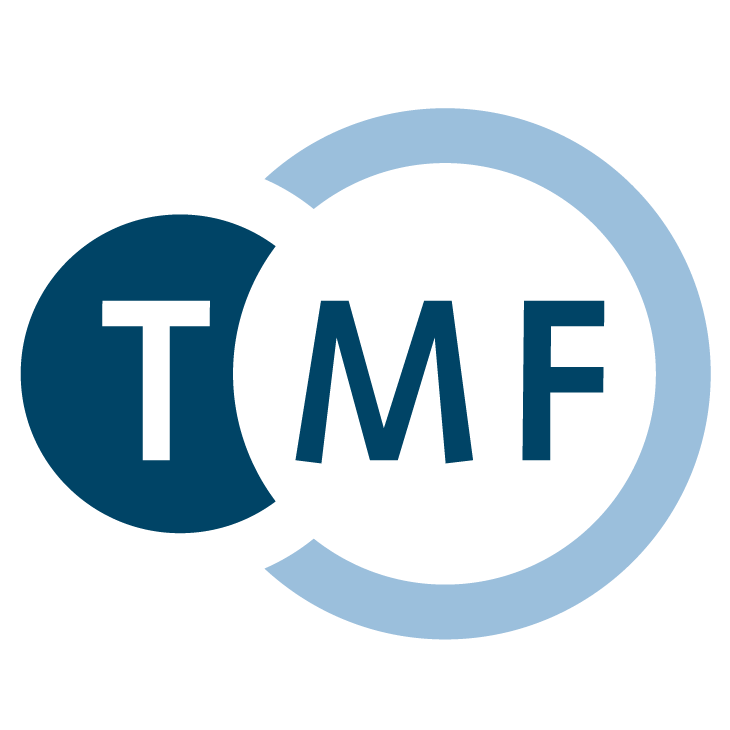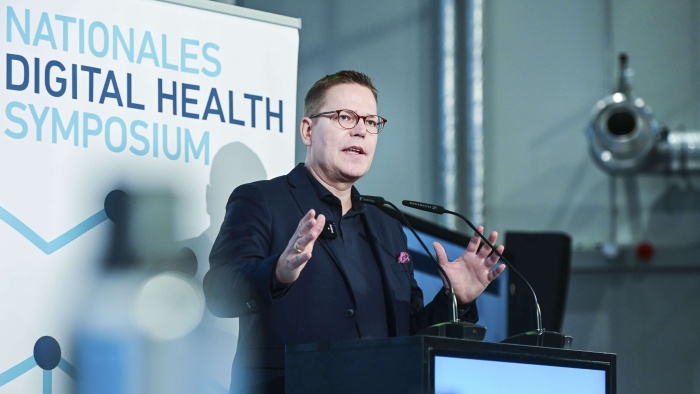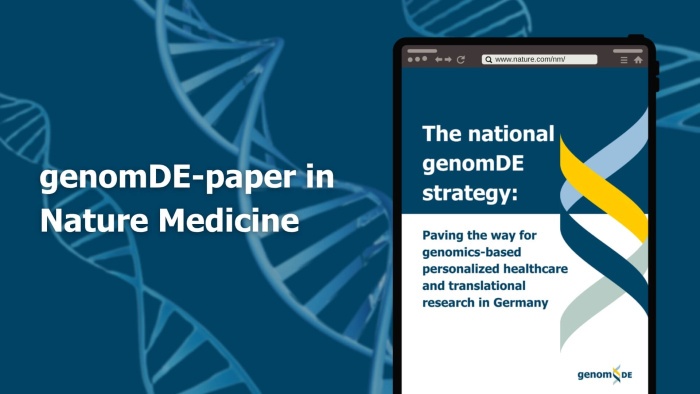Headwind for Genomic Medicine in Germany - genomDE Launches!

The TMF – Technology and Methods Platform for Networked Medical Research (TMF) coordinates a consortium of highly qualified experts to establish genomDE - a nationwide platform for medical genome sequencing. In addition to leading medical networks and professional societies, patient associations with their specific concerns are also involved in the project.
Sebastian C. Semler, Managing Director of the TMF, comments: "It is very welcome that the Federal Ministry of Health, with the 'genomDE' initiative, is advancing the national strategy for genomic medicine and establishing a national platform for whole-genome sequencing and data utilization. We are pleased to have succeeded in bringing together the 14 most important nationwide initiatives for data usage and sequencing in medicine with leading scientists and experts from various fields in a joint project. The coordination undertaken by the TMF aims, in particular, to bring together the already established structures in research and healthcare, utilize synergies, and directly involve relevant patient representatives in project management."
The primary goal of genomDE is to improve disease diagnosis, treatment, and prevention. By promptly making available the resulting data, especially genetic data, genomDE also aims to strengthen national and international medical research. GenomDE is financed by the Federal Ministry of Health (BMG) for a planned duration of three years. Since similar strategies have already been initiated in other European countries, the BMG's funding objectives also include linking genomDE with the EU's 1+Million Genome Initiative.
Knowledge-generating Networking of Care and Research
Laboratory techniques in human genome research have evolved rapidly in recent years. The analysis of the individual human genome has since played an increasingly significant role in medical care concepts, particularly in the context of "Personalized Medicine." Currently, the clinical application of genome sequencing is limited to rare hereditary diseases and cancer. However, genomic medicine appears fundamentally conceivable for various diseases and promises a substantial contribution to establishing a modern healthcare system in Germany and worldwide.
A central concern of genomDE is improving access for as many patients as possible to meaningful clinical applications of genome sequencing. As this procedure becomes increasingly efficient and precise in analyzing molecular disease processes, it allows for more accurate and faster diagnoses, more precise prediction of the efficacy and side effects of many therapies, and, in some cases, even more targeted disease prevention.
Since 2019, with the help of experts, the BMG has developed a series of recommendations for planning, establishing, and operating a genomic medicine platform. From July 2020 to March 2021, genomDE was also accompanied by a project under the EU Program for Support of Structural Reforms. In July 2021, the BMG finally anchored a model project for genome sequencing in §64e SGB V. genomDE will also support the establishment of the genomic medical data infrastructure envisaged there, with the participation of the Federal Institute for Drugs and Medical Devices (BfArM) and the Robert Koch Institute (RKI).
Quotes
"The diagnosis of rare diseases, about 80% of which have a genetic cause, is often lengthy. The genomDE initiative has the potential to shorten the path to a confirmed diagnosis for those affected by a rare disease - its success would be a milestone in care! If we can also jointly organize access to diagnostics for our patients, then genomDE will be a real gain for everyone."
Dr. Christine Mundlos, Deputy Managing Director, Alliance of Chronic Rare Diseases (ACHSE)
"People with cancer are interested in the comprehensive integration of genome sequencing into care. At the same time, there is a great need for information about the health opportunities and risks and for the protection of genetic and medical data. We therefore very much welcome the fact that the personal experience and knowledge of those affected are being incorporated into the interdisciplinary development of the genomDE platform for medical genome sequencing."
Hedy Kerek-Bodden, Chairperson, House of Cancer Self-Help - Federal Association (HKSH-BV)
"For lung cancer patients, molecular diagnostics and the derivation of personalized therapy have become the key to significantly extended survival with improved quality of life. Providing broad access to innovative drugs for as many patients as possible and ensuring the quality of diagnostics and therapy recommendations require networked, research-oriented structures, as exemplified by the national network Genomic Medicine Lung Cancer. We hope that genomDE will build on these pioneering infrastructures."
Bärbel Söhlke, Board Member, zielGENau - Patient Network Personalized Lung Cancer Therapy
"A rapid and clear diagnosis enables an individually tailored management for patients with rare diseases and familial tumor syndromes. It is also a prerequisite for offering targeted therapies. For the portion of more than 2 million patients with a rare disease in Germany who have not yet received a decisive diagnosis using conventional methods, there is now a great opportunity to finally discover the cause of their illness."
Prof. Dr. Olaf Rieß, Medical Director, Institute of Medical Genetics and Applied Genomics, University Hospital Tübingen; President, German Society of Human Genetics
"In recent years, exome sequencing, which analyzes all coding regions of the human genome in one step, has made great progress in diagnosing rare diseases. A logical next step is the sequencing of the entire genome, which can also detect disease-causing mutations in non-coding regions of the genome. However, genome sequencing poses special challenges for the interpretation of the generated data, which can be overcome through joint efforts such as in genomDE."
Prof. Dr. Markus Nöthen, Director, Institute of Human Genetics, University Hospital Bonn
"Patients with rare diseases often wait for years for their diagnosis, experiencing a 'diagnostic odyssey.' Thanks to the advances in genomic medicine, this time can be significantly shortened. In the Translate-Namse innovation project, we showed that exome sequencing makes it possible to make an exact diagnosis for 30% of these affected individuals - after many years of uncertainty. The interdisciplinary collaboration of experts in human genetics, informatics, and clinical care, which was necessary for this success, can now be continued in genomDE. This way, we will also make the research successes in genome sequencing usable for clinical diagnostics of people with rare diseases in the best translational sense."
Prof. Dr. Heiko Krude, Head, Berlin Center for Rare Diseases (BCSE), Charité - Universitätsmedizin Berlin
"As individual characteristics of malignant tumors are considered in the treatment of those affected, cancer medicine has fundamentally changed. Particularly, the knowledge of acquired and hereditary genetic factors responsible for cancer enables a 'personalized' selection of the right therapy at the right time. To consistently pursue this path, we greatly welcome the effort to anchor the analysis of complete tumor genomes in the routine care of cancer patients through genomDE."
Prof. Dr. Stefan Fröhling, Managing Director, National Center for Tumor Diseases (NCT) Heidelberg
"Molecular pathology diagnostics has led to major advances in treating cancer patients. However, it is still difficult to offer these testing options and therapies to all patients who need them. National initiatives such as the German Network for Personalized Medicine and the new legislation in §64e SBG V are important steps in this direction. The genomDE project offers the opportunity to bundle and further develop these activities so that all patients can benefit from the achievements of modern cancer medicine."
Prof. Dr. Peter Schirmacher, Director, Institute of Pathology, Heidelberg University Hospital
Press Contact
Christine Fechner
Phone: +49 30 2200 247-69
E-mail: presse@tmf-ev.de
Twitter: @tmf_eV
Further Information

About the TMF
The TMF is the umbrella organization for collaborative medical research in Germany. It serves as a platform for interdisciplinary exchange and cross-project and cross-location collaboration, with the aim of jointly identifying and solving the organizational, legal, ethical, and technological problems of modern medical research. The solutions range from expert opinions, generic concepts, and IT applications to checklists, guidelines, training, and consulting services. TMF makes these solutions available free of charge and to the public.


